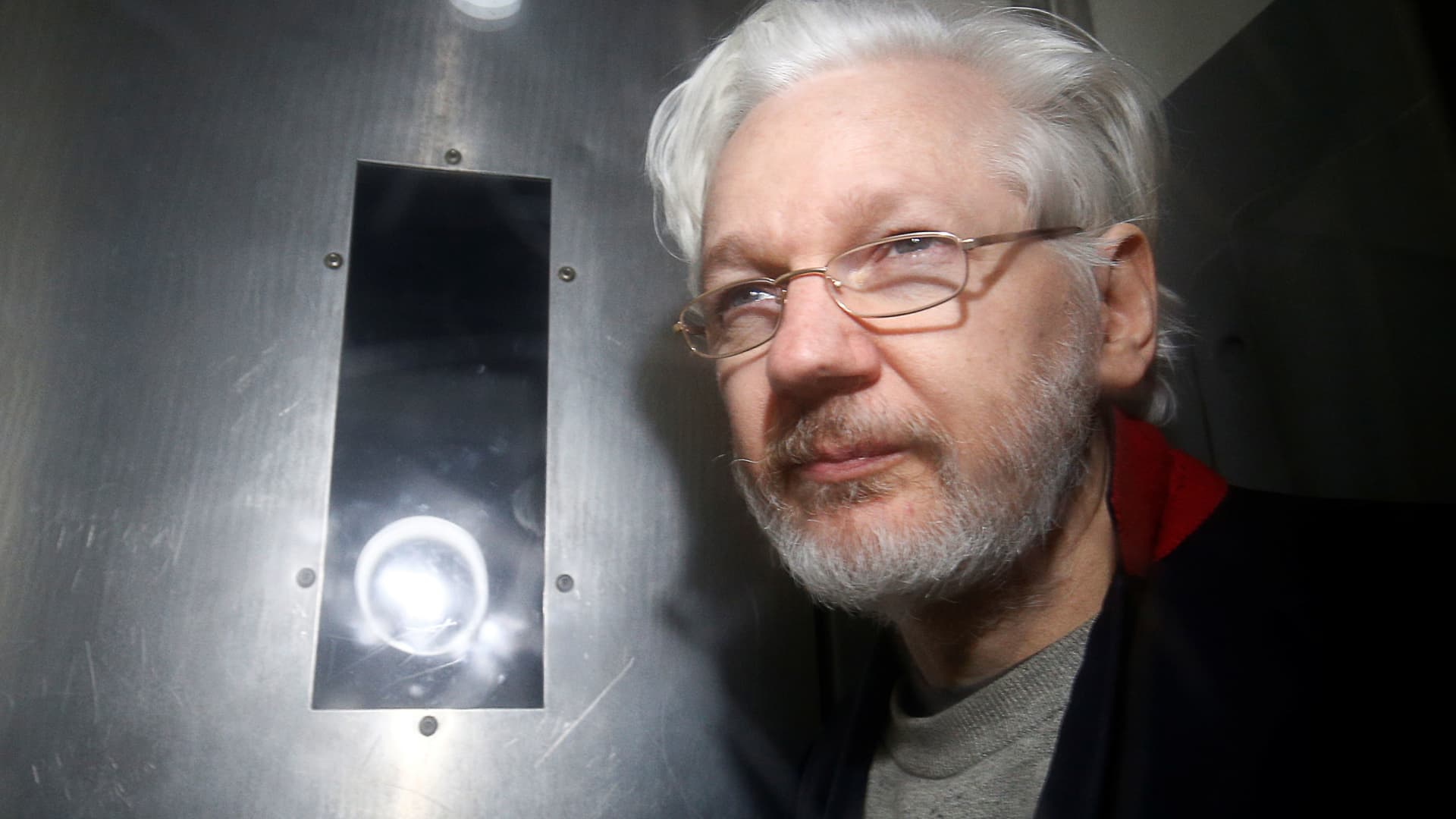In January 2023, Attorney General Merrick B. Garland appointed a special counsel to investigate President Biden’s handling of classified documents to avoid the impression that he was protecting his boss at the start of an election year.
The man Mr. Garland chose for the job, Robert K. Hur, wasn’t quite so careful.
On Thursday, Mr. Hur, 50, a former Justice Department official in the Trump administration, dropped a 345-page political bombshell in the middle of the 2024 campaign in the final report summarizing his investigation. Written in unvarnished prose, the document is an incredibly detailed and seemingly subjective assessment of Mr. Biden’s faulty memory that overshadows his conclusion: Mr. Biden, unlike former President Donald J. Trump, should not be prosecuted.
The Hur report highlights the challenges of deploying special prosecutors, who are supposed to protect prosecutors from political interference but often result in the release of negative information about high-profile targets who have been cleared of criminal wrongdoing. It also highlighted the complicated balance of the job – navigating a polarized environment that leaves little choice but to detail the reasons behind every decision.
Mr. Hur is no stranger to high-wire investigations and legal conflicts. Under the Trump administration, he served as top adviser to Deputy Attorney General Rod J. Rosenstein for 11 months — when Mr. Rosenstein oversaw the appointment of special counsel Robert S. Mueller III to investigate Mr. Trump’s ties to Russia.
Mr. Hur’s critics say he has broken the guardrails designed to avoid overshadowing politicians facing difficult elections. This was perhaps best illustrated by FBI Director James B. Comey’s public condemnation of Hillary Clinton’s handling of government secrets in the months before the 2016 election.
Among the thousands of sentences in the Hur report, one stands out like a dagger: “Mr. “Biden would likely present himself to a jury, as he did during our interview with him, as a personable, well-meaning, older man with a poor memory,” he writes.
It is not uncommon for witnesses in federal cases to cite their faulty memories in interviews with investigators, particularly of events that occurred years earlier. But Mr. Hur added references to Mr. Biden’s memory that were not directly related to the preservation of classified documents – including the president’s struggle to remember the year (2015) in which his son Beau died, a harrowing one event in his life.
According to critics, these revelations, which were immediately seized upon by Trump supporters, appeared to conflict with Mr. Hur’s terms of reference as special counsel.
“Special Counsel Hur’s report on issues involving classified Biden documents contains far too many unfounded comments and is completely inconsistent with the Justice Department’s longstanding traditions,” Eric H. Holder Jr., President Barack Obama’s attorney general, wrote on social media media, reflecting a growing feeling that the disclosure was causing political damage to the president.
Anthony Coley, Mr. Garland’s spokesman when Mr. Hur was nominated, said the focus on Mr. Biden’s memory had crossed a line.
“He should be a referee calling balls and strikes,” said Mr. Coley, who interacted with Mr. Hur in the department. “But the editorials — the exaggerated, unnecessary commentary about an unindicted person — felt like political headlines.”
A spokesman for the special counsel declined to comment.
Current and former ministry officials said Mr. Hur’s portrayal was likely motivated by self-preservation. He must justify his decision not to charge Mr. Biden, even though the administration has charged Mr. Trump with similar, although far more serious, violations, they said. (Mr. Hur said Mr. Biden shared the contents of his handwritten notebooks, which contained references to classified material, with his ghostwriter.)
And even though he was mostly private, that will soon come to an end. Mr. Hur is expected to testify about his findings before Congress, where Republicans will almost certainly accuse him of applying a “two-tier” standard of justice that favors Mr. Biden and punishes Mr. Trump.
For his part, Mr. Garland could have redacted portions of the report that he deemed inappropriate or that were flagged for national security concerns.
But he decided against it, consistent with attorneys general’s practice of not engaging with special counsel, and because department officials assumed the material would be aired anyway during Mr. Hur’s testimony before Congress, according to one with their thinking A person familiar who spoke on April 17, 2016, spoke on condition of anonymity to discuss details of the investigation.
The report is expected to do little to improve Mr. Garland’s standing among members of Mr. Biden’s inner circle, who are frustrated with his measured approach to the Trump investigation.
Federal regulations for special counsel provide few explicit instructions on how a final report should be prepared.
The firestorm over Mr. Hur’s findings also reflected serious, perhaps irreconcilable, problems with department rules for special prosecutors, independent investigators who are supposed to protect political appointees from allegations of political interference.
Justice Department practice dictates that prosecutors “speak through records” — criminal complaints filed against defendants — rather than through public statements.
But when a special counsel decides not to indict someone, he is somewhat obligated to disclose unfavorable conduct that is not criminal to explain why he did not file charges, as was the case in Robert S. Mueller III’s investigation of Mr case was. Trump’s ties to Russia.
Mr. Hur’s summary, which contains many of the most quotable characterizations about Mr. Biden’s memory and age, read like a standard internal department memorandum prepared to justify a decision not to prosecute, former prosecutors said. These are typically distributed within the department and provide an unvarnished assessment of the likelihood of a case being accepted before a jury.
But Bob Bauer, Mr. Biden’s personal lawyer, opined that Mr. Hur had crossed the line, accusing him of disregarding the Justice Department’s “rules and norms” and comparing the special counsel’s conduct to that of Mr Comey, who came under fire for his behavior, sharply criticized Mrs. Clinton.
In a letter attached to the report, Mr. Biden’s lawyers called the inclusion of a discussion about Mr. Biden’s memory “derogatory.” They noted that the five-hour interview with the president came shortly after the Oct. 7 terrorist attacks on Israel, after Mr. Biden had spent hours on the phone with foreign leaders.
Mr. Hur was chosen by Mr. Trump to lead the U.S. attorney’s office in Maryland, where he was praised by the state’s Democratic senators for his handling of violent crime and public corruption cases.
Mr. Hur, who is listed as a registered Republican in Maryland, completed his undergraduate studies at Harvard and received a law degree from Stanford.
But it was his time working with Mr. Rosenstein, then the deputy attorney general, that may have best prepared him for his current role.
Mr. Hur helped run the department’s day-to-day operations during a time of great turmoil: From mid-2017 to late 2018, Mr. Rosenstein threatened to fire Mr. Trump over his decision to appoint Mr. Rosenstein. Mueller, what the president viewed as a personal betrayal.
“We were heavily criticized by the commentators — and the president — and Rob kept his head down, pushed forward and never lost his sense of humor,” Mr. Rosenstein said in an interview after Mr. Hur’s appointment was announced.
“Every special prosecutor starts out with a great reputation, but no one ends up that way,” he said at the time.
Source link
2024-02-10 02:02:12
www.nytimes.com















